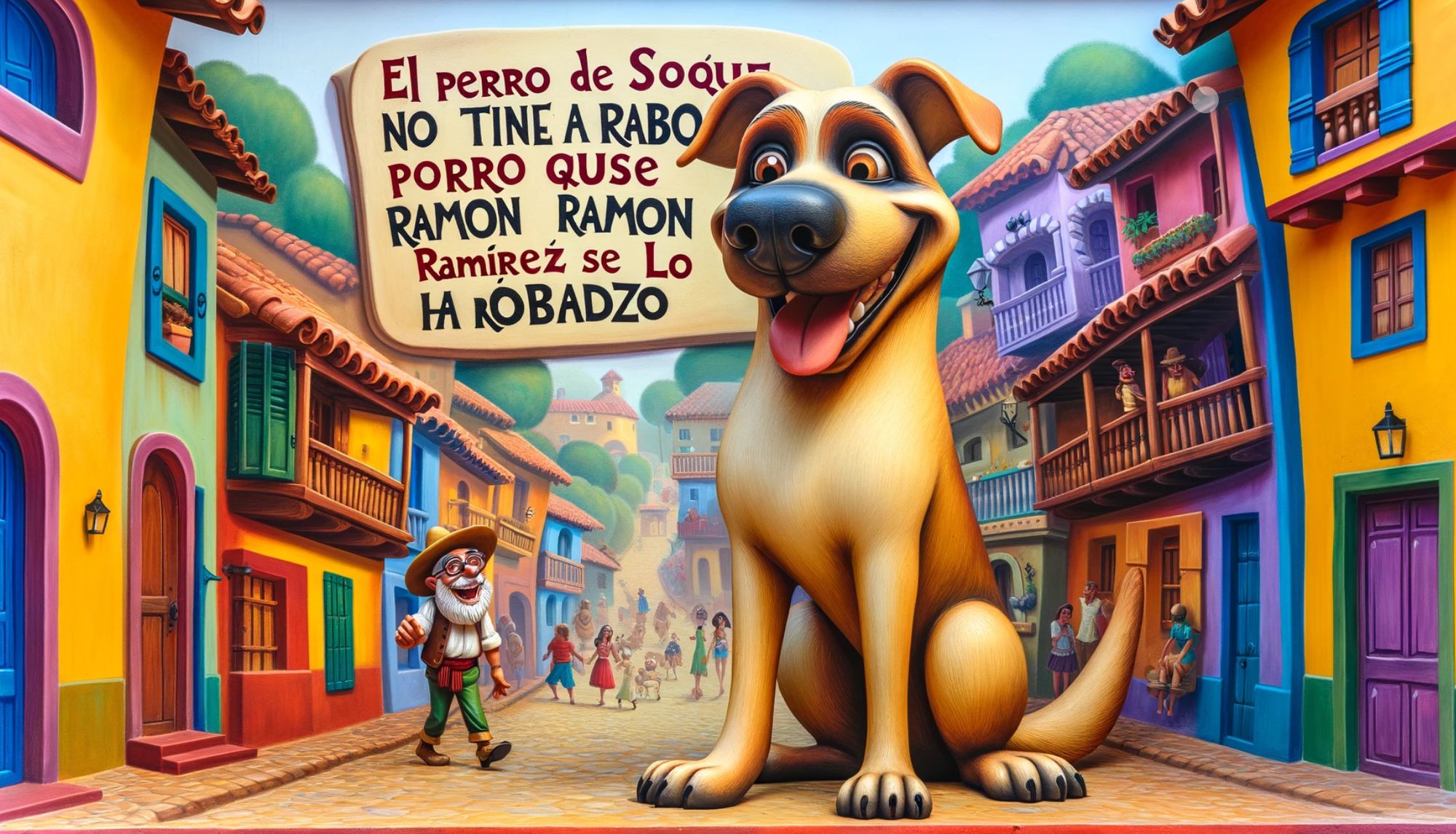Learning a new language can be a challenging yet exhilarating experience. Among the many techniques and tools available for language acquisition, tongue twisters in the target language offer a unique and entertaining method. In the case of Spanish, one of the world's most spoken languages, utilizing Spanish tongue twisters can significantly enhance your pronunciation, listening skills, and overall fluency. This article presents 20 Spanish tongue twisters that are not only fun but also incredibly effective for those eager to learn Spanish.

1. Tres Tristes Tigres

"Tres tristes tigres tragaban trigo en un trigal en tres tristes trastos."This classic tongue twister is perfect for practicing the Spanish 'tr' sound.
2. Pepe Pecas
"Pepe Pecas pica papas con un pico, con un pico pica papas Pepe Pecas."Great for mastering the 'p' sound, this twister is both challenging and amusing.
3. El Cielo Estrellado
"El cielo está enladrillado. ¿Quién lo desenladrillará? El desenladrillador que lo desenladrille, buen desenladrillador será."A test of your rolling 'r' sounds and rhythm in Spanish.
4. Pablito Clavó un Clavito
"Pablito clavó un clavito en la calva de un calvito. En la calva de un calvito un clavito clavó Pablito."This twister is ideal for practicing the 'cl' sound.
5. El Perro de San Roque

"El perro de San Roque no tiene rabo porque Ramón Ramírez se lo ha robado."A fun way to work on 'r' sounds, both soft and strong.
Certainly! Continuing with the list of Spanish tongue twisters:
6. Camarón Caramelo
"Camarón caramelo, caramelo camarón, caramelo de camarón, camarón de caramelo."
This tongue twister is excellent for practicing the 'ca' and 'ra' sounds.
7. El Amor y el Amo
"El amor amarro al amo, y el amo, mudo, amó al amor que al amo amarró."
A great choice for mastering the 'm' and 'r' sounds, and it's also a fun play on words.
8. Erre con Erre
"Erre con erre guitarra, erre con erre barril. Rápido corren los carros, cargados de azúcar del ferrocarril."
A classic for practicing the rolling 'r', this tongue twister is both challenging and popular.
9. Como Poco Coco
"Como poco coco como, poco coco compro."
This one is great for beginners, focusing on the 'c' sound.
10. El Hipopótamo Hipo

"El hipopótamo Hipo está con hipo. ¿Quién le quita el hipo al hipopótamo Hipo?"
Great for practicing 'h' sounds and the rhythm of Spanish speech.
11. Parangaricutirimícuaro
"El volcán de Parangaricutirimícuaro se quiere desparangaricutiriguarizar, el que lo desparangaricutiriguarice, un buen desparangaricutiriguarizador será."
This tongue twister is not only a mouthful but also includes a real location in Mexico, making it a fun cultural reference.
12. Paco Peco
"Paco Peco, chico rico, insultaba como un loco a su tío Federico y este dijo: poco a poco Paco Peco poco pico."
It's a great exercise for different 'p' and 'c' sounds.
13. Pedro Pérez
"Pedro Pérez pintor pinta preciosos paisajes por poco precio para poder partir para París."
Ideal for practicing 'p' and 'r' sounds, this twister also incorporates alliteration.
14. La Gallina Papanata
"La gallina papanata se ha tragado una pata de pato, y el pato pateta ha pegado un patatús."
Great for practicing the 'p' and 't' sounds.
15. El Sordo Leedor
"El sordo leyó un libro en un rincón. Rápido leyo el sordo el libro, y lo dejó."
This one focuses on 'l', 'r', and 's' sounds.
16. Don Pito Piturro
"Don Pito Piturro, ¿dónde va usted tan curro? Va en busca de un murciélago peludo y murmurador."
Perfect for practicing 'd', 'p', and 'm' sounds.
17. Cuatro Cuentos
"Cuando cuentes cuentos, cuenta cuántos cuentos cuentas, porque si no cuentas cuántos cuentos cuentas, nunca sabrás cuántos cuentos cuentas tú."
This tongue twister is a numerical challenge as well as a linguistic one.
18. Vaca Paca
"La vaca Paca paca mucha paca con su paca paca."
It’s great for practicing 'p' and 'c' sounds in a fun and easy way.
19. El Vino y la Vida
"Si tu gusto gustara del gusto que gusta mi gusto, mi gusto gustaría tu gusto, pero como tu gusto no gusta del gusto que gusta mi gusto, mi gusto no gusta tu gusto."
This one is as much a tongue twister as it is a brain teaser.
20. El Dragón Tragón
"El dragón tragón tragaba carbón y el carbón que tragaba el dragón tragón le llenaba el dragón de carbón."
This whimsical twister is excellent for practicing the 'dr' and 'tr' sounds in Spanish.
Learn Spanish With Lingopie
In addition to practicing these tongue twisters, a great way to immerse yourself in the Spanish language is through innovative platforms like Lingopie. Lingopie offers an engaging and effective method for learning Spanish by providing access to a vast library of TV shows and movies in the language. This platform stands out by allowing learners to watch their favorite shows with dual subtitles. You can see the Spanish text and its translation simultaneously, making it easier to understand and learn new words and phrases in context.
Moreover, Lingopie integrates interactive features such as clickable subtitles, where you can get instant definitions and pronunciations of any word you're unfamiliar with. This approach not only makes learning Spanish enjoyable but also incredibly practical, as you're exposed to the language as it's naturally spoken by native speakers.
Related:


FAQs: Spanish Tongue Twisters
Why are tongue twisters useful in learning Spanish?
Tongue twisters are an effective tool for language learning. They help improve pronunciation, speed, and fluency in Spanish by challenging learners to articulate complex combinations of sounds clearly and quickly.
Can beginners in Spanish try these tongue twisters?
Absolutely! Beginners can start with simpler tongue twisters and gradually progress to more complex ones as their confidence and skill level increase.
How often should I practice tongue twisters?
Regular practice is key. Even just a few minutes daily can significantly improve your pronunciation and speaking skills.
Are tongue twisters helpful in improving my Spanish accent?
Yes, they can help in accent reduction and in acquiring a more native-like pronunciation by training your mouth and tongue to produce Spanish sounds accurately.
How can I incorporate tongue twisters into my Spanish learning routine?
You can start or end your study sessions with a few rounds of tongue twisters, use them as a warm-up before speaking practice, or even challenge friends learning Spanish to tongue twister duels for fun.
Are there any specific tongue twisters for practicing rolling 'r's?
Yes, tongue twisters like "Erre con erre guitarra" are specifically designed to help with rolling 'r's, a common challenge for Spanish learners.
Can tongue twisters help in improving my listening skills in Spanish?
Yes, listening to and repeating tongue twisters can enhance your ability to distinguish and understand rapid speech in Spanish.
Is it okay to make mistakes while practicing tongue twisters?
Absolutely. Making mistakes is a natural part of the learning process. The key is to keep practicing and aim for gradual improvement.
How can I find more Spanish tongue twisters to practice?
You can find them in Spanish language books, online language learning platforms, and cultural websites. Joining Spanish learning forums and communities can also be helpful.
Are there any tools or apps to help with tongue twister practice?
Yes, there are language learning apps that include pronunciation tools, and some may offer tongue twister exercises. Additionally, you can use text-to-speech tools to hear how they're pronounced.
Summing Up:
In conclusion, combining the practice of Spanish tongue twisters with immersive learning tools like Lingopie can significantly boost your proficiency in the language. Tongue twisters challenge your pronunciation and listening skills, while platforms like Lingopie provide a real-world context for the language, making your learning journey both effective and enjoyable. Whether you're a beginner or looking to polish your Spanish skills, incorporating these methods into your routine will undoubtedly accelerate your learning curve.






![Mastering Pronouns in French [For Beginners]](/blog/content/images/size/w1200/2023/12/Spanish-1-2.png)
![30+ Modern English Slang Terms For Money [Guide]](/blog/content/images/size/w300/2025/06/Slang-term-for-money.jpg)
![5 Official Spanish Language Tests To Show Your Proficiency Level [Guide]](/blog/content/images/size/w300/2025/06/Spanish-Language-Tests.jpg)

![Why Memorizing Spanish Words Won’t Make You Fluent [Tips]](/blog/content/images/size/w300/2025/06/how-to-practice-spanish-vocabulary.jpg)